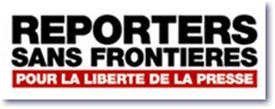
NEW
YORK, May 10, 2012/African Press Organization (APO)/ — Ethiopia’s main,
state-owned printing company has directed newspaper publishers to censor
any content that may draw government prosecution under the country’s
antiterrorism law or face cancellation of their printing contracts,
according to local journalists and news reports.
In late
April, the state-owned Barhanena Selam (Light and Peace) Printing
Company, which is used by most local newspaper publishers, issued a
directive saying it would refuse to print any material it believes would
breach Ethiopia’s 2009 anti-terrorism law, according to the same
sources.
The legislation criminalizes independent reporting on
opposition groups or causes that the government deems terrorist and
holds printers, as well as publishers, accountable for material that
“promotes terrorism.” The directive, a copy of which CPJ obtained,
allows Barhanena Selam the right to cancel any printing contract if the
publisher repeatedly submits content the printer considers legally
objectionable. (An English translation of the Amharic directive can be
read here).
Barhanena
Selam said it would require all newspaper publishers to agree to the
new terms before further publications would be printed. Local
journalists said there haven’t yet been interruptions to printing even
though not all newspapers have signed.
“This
directive, coming from a state-owned company, is an effort to codify
pre-publication censorship under the repressive terms of Ethiopia’s
antiterrorism law, which the United Nations has criticized for its
excessive scope,” said CPJ East Africa Consultant Tom Rhodes. “This
directive must be rescinded immediately.”
Thirteen
publishers have jointly protested the directive, claiming it
contravenes Article 29 of Ethiopia’s Constitution and the Freedom of the
Mass Media and Access to Information law, which both prohibit
censorship, the editor of the weekly Reporter, Amare Aregawi,told CPJ.
The publishers also drafted a letter to Prime Minister Meles Zenawi, he
said.
The
publishers question the ability of the printing company to determine
what may be illegal, Addis Fortune Managing Editor Tamerat Giorgis told
CPJ. The printing company declined a meeting, but the publishers still
hope to meet and negotiate with the company soon, according to local
reports.
The
publishers questioned government spokesman Shimeles Kemal at a function
for World Press Freedom Day in the capital Thursday over the directive,
according to a local news report. Although the printing company is state
owned, he claimed the issue is a private one between businesses, the
same report said.
Ethiopia
is the second leading jailer of journalists in Africa, with seven
journalists imprisoned on terrorism-related charges, according to CPJ
research. The verdict of critical blogger and 2012 PEN America press
freedom award winner, Eskinder Nega, is expected Friday. He could face
the death penalty if convicted.
For more data and analysis on Ethiopia, visit CPJ’s Attacks on the Press.
SOURCE Committee to Protect Journalists (CPJ)

Sudan / Call for an end to harassment of detained journalist Faisal Mohammed Salih
PARIS,
France, May 10, 2012/African Press Organization (APO)/ — The freelance
journalist and human rights activist Faisal Mohamed Salih was arrested
arbitrarily today in the Sudanese capital, Khartoum. The day before, he
was held for eight hours at the office of the security forces where he
was given nothing to eat or drink.
Reporters
Without Borders is outraged at the violence and pressure to which the
journalist, a former editor of the newspaper Al-Adwa, has been subjected
for almost two weeks.
“We ask
the Sudanese authorities to call a halt to such cruel intimidation,
bordering on physical and psychological torture,” Reporters Without
Borders said.
“The aim
of these repeated detentions is to push him to his limit and at the
same time to prevent him from doing his job. We call for Faisal Mohamed
Salih’s immediate and unconditional release.”
On 25
April, Salih was summoned to the office of the National Intelligence and
Security Services in Khartoum where he was questioned by officers for
several hours about critical comments he made about President Omar
Hassan al-Bashir in an interview with Al-Jazeera on 19 April.
The next
day, he was once again called the NISS office and subsequently spent
seven hours a day there every day, until his arrest, without being
questioned and with no legal proceedings or judicial investigation being
undertaken against him.
“The
constant harassment to which he has been subjected is further proof of
the repressive attitude towards the press on the part of the Khartoum
government, whose intention is to silence all dissident voices,” the
press freedom organization added.
On 22
and 24 April and 3 May, the intelligence service seized all copies of
the opposition newspaper Al-Midan as soon as it had completed its print
run. No clear reason was given.
Besides
preventing Sudanese citizens from being informed, this method of
censorship causes severe financial losses for the media organizations
concerned, which face a stark choice of self-censorship or closure.
SOURCE Reporters without Borders (RSF)
No comments:
Post a Comment
The views expressed in this section are the authors' own. It does not represent The North Bank Evening Standard (TNBES)'s editorial policy. Also, TNBES is not responsible for content on external links.